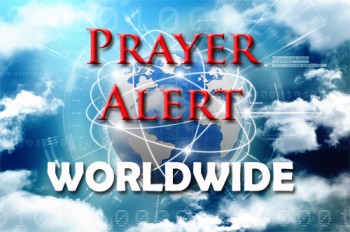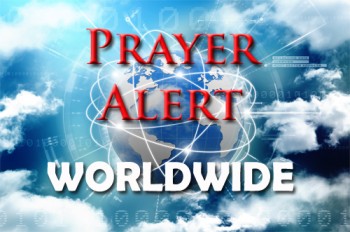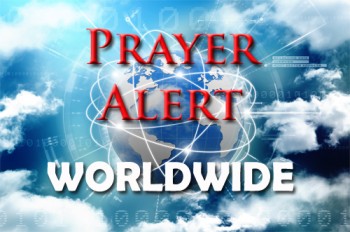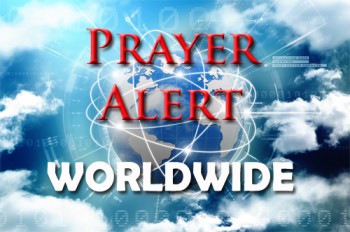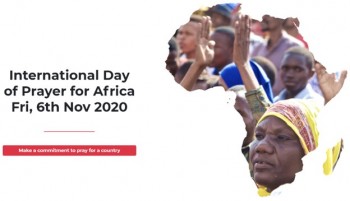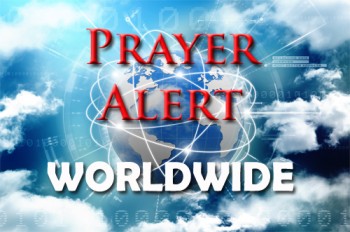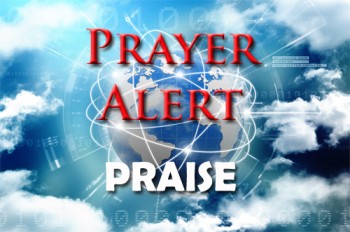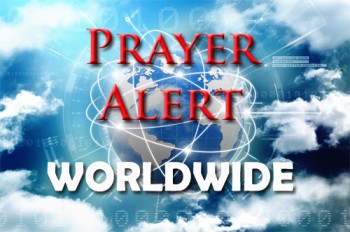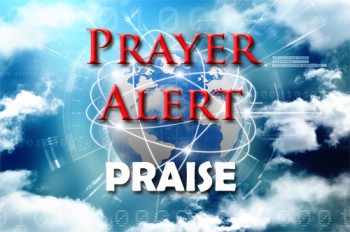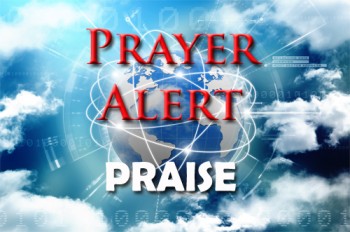Displaying items by tag: Africa
Ethiopia: conflict spreads to Eritrea
A rocket attack by Tigray forces on Eritrea marks a major escalation of violence as thousands of Ethiopian refugees continue to pour into Sudan. The UN refugee agency says that over 20,000 people have crossed into Sudan from Ethiopia’s northern region, where federal government troops are battling forces loyal to the Tigray People’s Liberation Front (TPLF), the party of the regional government. The conflict, which has spilled over Ethiopia’s borders, threatens to destabilise the wider Horn of Africa region. The latest two-week war has killed hundreds of people. Ethiopia and Eritrea agreed in 2018 to end decades of hostilities, resulting in Ethiopian prime minister Abiy Ahmed winning the 2019 Nobel Peace Prize. However, there is still a deep-seated animosity between Eritrea and the battle-hardened TPLF over the border conflict.
Ethiopia: Christian women, children and elderly massacred
Survivors of a massacre at a school in the western Oromia region of Ethiopia reported that 54 ethnic Amhara were massacred, probably more. The Amhara are mostly Christians. About 60 armed terrorists, identifying themselves as the Oromo Liberation Army (OLA), swept into Gawa Quanqa village, Guliso District at around 5 pm on 1 November. Some survivors were able to flee to a nearby forest while the assailants rounded up women, children and elderly who were unable to run away. Then they shot the defenceless group and burnt 120 houses. ‘This senseless attack is the latest in a series of killings in the country in which members of ethnic minorities have been deliberately targeted’, said Amnesty International.
Democratic Republic of the Congo: violence escalates
Father José Arieira de Carvalho, a Portuguese priest who has lived in the DRC for over a decade, reported a critical situation in the north-eastern part of the country ‘where rebel groups roam across the region, looting and murdering. Recently the Lisasa village suffered a violent attack by rebel troops, claiming at least 21 lives, including that of catechist Richard Kisusi. There are reports that a Catholic church was defiled, several houses were burned down, and a medical post was looted. Bishop Sikuli Paluku Butembo-Beni called upon UN forces stationed in the region to protect the civilian population from attacks. In view of the escalating violence, the need for protection is becoming ever more pressing. The wealth of minerals has transformed certain regions of the country into a battleground for violent factions, bringing hardship and suffering to the people. It is believed there is a conspiracy between internal and external players to obscure ruthless exploitation of natural resources (mining, oil, woodland, and land).
Mozambique: 50+ beheaded by IS-aligned extremists
Suspected IS-aligned militants herded dozens of fleeing victims to soccer fields to execute them and abducted others, in weekend raids in Mozambique. The commander of the police force said extremists carried out attacks on several villages in the Cabo Delgado province. They beheaded over fifty people, abducted women and children and burnt down homes. Then they went after those who had fled to the woods and continued their macabre actions. The BBC, and privately-owned Pinnacle News, reported that villagers in Mautide who tried to run were taken to the field and chopped to pieces. Police learned of the massacre committed by the insurgents through reports of people who found corpses in the woods The oil-rich Cabo Delgado province has seen a rise of terror attacks since 2017 by ASWJ militants who have officially pledged allegiance to IS Central Africa Province.
International Day of Prayer for Africa - 6 Nov 2020
Cover Africa in Prayer - from Cairo to Cape Town and from Madagascar to Cape Verde -
As part of the International Day of Prayer for Africa, One God – One Day – One Africa and its partners from all around the world will pray for Africa from 06:00 to 22:00 CAT (Central Africa Time).
We are so excited because a week later the One God – One Day – One Africa celebrations will take place.
On 12-15 November our partners will host large Gospel crusades in almost every country of Africa. They will be broadcast all over the continent. Additionally, thousands of African evangelists committed to bringing the Good News to remote villages during that time.
Join, pray with us!
Set time aside to pray with us on 6 November. Let's storm the heavenly throne room and ask for breakthroughs in every nation of Africa. Let's pray for an end to the pandemic, an outpouring of the Holy Spirit and of course many open hearts to receive Jesus Christ as their Lord and Saviour.
Download Africa Flyer Download International Flyer
Make a commitment to pray for an African country NOW at www.1GDA.org/prayerday
Nigeria: police chief vows to take back streets
Protests against police brutality subsided after a violent crackdown: see Now the police chief has ordered more police resources after the curfew gave way to widespread vandalism and looting, including government food warehouses stripped bare. Shopping malls, TV stations, and banks were targeted, and also retail stores in popular Lagos shopping districts. Violence and looting have been reported in most states. Amnesty International said, ‘The turmoil has seen the worst street violence since Nigeria’s return to civilian rule in 1999. Wealthy politicians and individuals have been looted, emboldening hoodlums that crimes of this magnitude are achievable. In an effort to quell unrest, the government announced that the Special Anti-Robbery Squad (SARS) would be disbanded, and promised a host of reforms. But demonstrators are sceptical of government promises without clearly-specified timeframes. Pray for the police to successfully and peacefully prevent further hooliganism. See also
Egypt: Christians candidates in election
A record number of Christians (108) are standing for election in the Egyptian elections being held between 24 October and 8 November. These Christians are on the four party lists, contesting 284 seats allocated to political parties in the parliament. There have been continuous positive messages from President Sisi to protect Egypt’s Christian community, one of the oldest and largest Christian communities in the region. In previous elections, Christian candidates were barred from running or forced to withdraw due to threats of violence. Attacks and pressure on Copts continue in rural areas, but this positive development is very welcome.
Nigeria: police shoot anti-brutality protesters
On 21 October Lagos police opened fire on protesters after twelve days of demonstrations against police brutality. The shootings took place at a toll gate after Lagos officials had imposed a 24-hour curfew on 20 million people in a bid to bring the protests to an end. But the demonstrations against the Special Anti-Robbery Squad (SARS) show little sign of slowing down. SARS should tackle robbery, kidnappings and other violent crime, but has been widely criticised for human rights abuses including torture, extortion and extrajudicial killings. Plain clothes police officers frequently target young men with tattoos, dreadlocks, and expensive cars arbitrarily. The Nigerian army has tweeted out stills of news reports about the ‘alleged’ shootings with the words ‘fake news’ plastered across them in red letters. However, Amnesty International said there is disturbing credible evidence that they actually took place. See also
Niger: abducted priest freed after two years
When Fr Pier Luigi Maccalli, now 59, was kidnapped two years ago by unknown armed men from his parish of Bamoanga, it left the communities he had served for 11 years in shock. Now he is understood to have been freed in northern Mali with four other hostages also held by Islamist extremists. The new Malian transitional government met the hostages. Their release, and that of some suspected militants, fuelled expectations of an imminent prisoner swap. It is not clear if ransoms were paid.
Corrupt Kenyan police found guilty
This week the International Justice Mission invites us to join in praising God for a huge step forward in the class-action lawsuit that IJM Kenya helped bring against police, demanding greater accountability. One of the requests in the petition has been granted, and the court has ordered the inspector general to investigate 22 cases of police killings that were documented and presented as part of this petition. This case is important because it shows that the Kenyan government can be held accountable for the actions of its officers.
